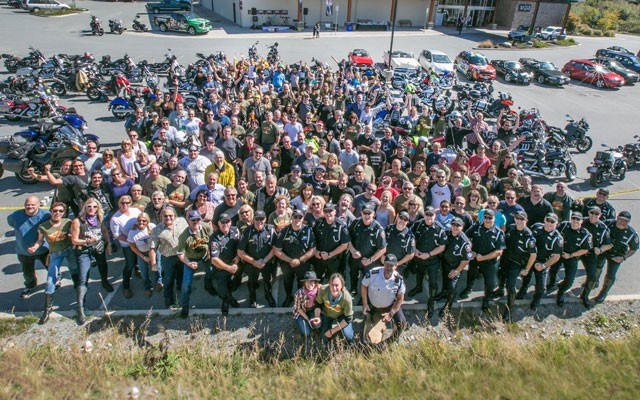The 14th annual Music Therapy Ride hits the road this weekend. And in keeping with their aims, music will be a part of the ride up the Sea to Sky Highway.
"We're going to fill up the base of the GLC again with motorcycles and we're bringing the country band High Valley and the wonderful Shaun Verreault from Wide Mouth Mason," organizer Patrick Zulinov says.
"It's coming together nicely. We always hope for more and appreciate any contributions people have. Quite a few people believe in what we are doing."
This year, the ride runs from Downtown Vancouver to Whistler. Zulinov says the ride raised $80,000 last year and hopes to top it.
Established by members of the Vancouver music industry in 2002 with representatives from booking agencies, radio stations, record labels, talent managers, concert promoters and recording artists, the Music Therapy Ride is a charity ride designed to raise funds for community-based music therapy services in B.C.
The Music Therapy Association of British Columbia awards grants to deserving music therapists and care facilities.
The association has also purchased and funded Bandwagon Units, travelling recording studios that work with people in hospitals and other locations with therapists encouraging music making and its healing capacity. Two are currently in operation — one of them permanently at Vancouver Children's Hospital — with a third being commissioned this week.
"We've been funding the Bandwagon Units, which have been going all around — they were on Vancouver Island in the last year and out to the Interior and Richmond," Zulinov says.
"It seems like there is great demand for them from music therapists, because it helps them do their work with patients."
He says the value of the music therapy is felt by people of all ages.
"We have programs in the children's hospital, in burn wards, seniors' centres, and in different hospices. We see so many different ways that music therapists do their work, whether it's helping people with their vocal ability after a stroke or helping kids in burn wards feel better, helping with mobility," Zulinov says.
"It's an unconventional way to do treatment but it steps in where things like physiotherapy or pharmaceuticals can't do something. We all know how much music hits us when we hear or write songs that make us feel great. It's not just the listening to it, music therapists do so much to help people gain confidence."
Even terminally ill patients will use music therapy to express themselves or even leave something behind for loved ones, he says.
Zulinov notes that music therapy is not funded by the government, and that often the public aren't even aware that it exists as an option.
"There are so many ways that music therapists come into play that it only seems like the tip of the iceberg when they do their work. We continue to believe in this and programs are expanding," he says.
"We all love music and it touches us all, no matter who we are, our social class, religion or anything. When you get to the core of it and work out how it can help people who are suffering, you can see it's amazing potential."
For more information or to donate visit www.musictherapyride.org.




